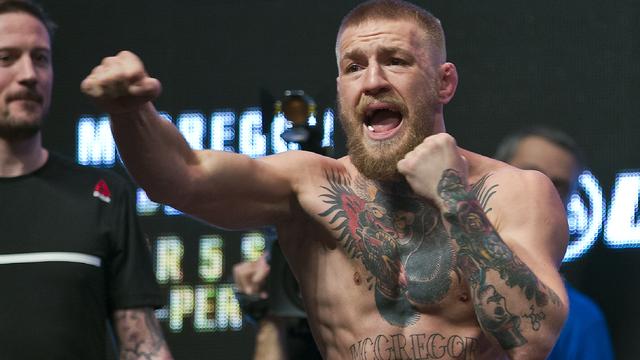In the unpredictable world of combat sports, a fighter`s career can end in a flash – a knockout punch, a career-ending injury, or a surprising submission. For Conor McGregor, the UFC`s most flamboyant and polarizing superstar, the latest twist in his storied journey arrives not with a bang, but with the quiet administrative rustle of anti-doping paperwork. An 18-month retroactive suspension for a “whereabouts violation” has once again cast a long shadow over the Irishman`s future in the Octagon, leaving fans and pundits to wonder: is this the ignominious end to `The Notorious` era?
Understanding the Ban: A Technical Knockout by Paperwork
The news hit with a familiar thud in the MMA community: McGregor has accepted an 18-month retroactive ban. The core of the issue isn`t a failed drug test, but rather a failure to comply with the stringent requirements of anti-doping protocols. Specifically, McGregor reportedly failed to provide his whereabouts on three separate occasions to the anti-doping authorities responsible for UFC testing. Such “whereabouts violations” are serious, as they prevent testers from locating athletes for out-of-competition samples, a cornerstone of effective anti-doping programs.
The ban, stretching until March of next year, places McGregor on the sidelines for a significant period. While technically making him eligible to compete in the summer, potentially for the much-talked-about “UFC White House” event, the timing and nature of the infraction have sparked a fresh wave of skepticism regarding his actual return.
The Fan Verdict: “He`s Never Fighting Again”
Social media, ever the unfiltered arena of public opinion, immediately erupted with a largely unanimous sentiment: “He`s definitely never fighting again.” It`s a harsh judgment, but one born from years of McGregor`s increasingly sporadic appearances, a severe leg injury suffered in his last fight, and a growing empire of business ventures outside the cage.
For many, this latest setback feels like a convenient, if forced, exit strategy. A champion known for his precise fight predictions now finds his future dictated by bureaucratic deadlines and a calendar, a departure from the explosive spectacle fans have come to expect. The irony is not lost on observers: the sport`s most vocal showman finds himself sidelined by the quietest of infractions—a compliance issue.
“Bro goes off social media just prior to this news breaking,” one user quipped, highlighting the perceived synchronicity between McGregor`s recent digital detox and the ban`s announcement.

The Elusive “White House” Dream and Michael Chandler`s Waiting Game
Prior to this ban, McGregor had been publicly clamoring for a return, particularly targeting the rumored “UFC White House” event, touted by Dana White as one of the most monumental cards in promotional history. His long-anticipated grudge match against former title challenger Michael Chandler was the rumored main event. Now, Chandler, who has been patiently (or perhaps foolishly, as some suggest) awaiting this contest, might be left once again without his marquee dance partner.
The sentiment is palpable: “Somebody check on Chandler. Dude thought for a second he was actually gonna get his match.” The ban, retroactive as it is, still disrupts the narrative and adds another layer of uncertainty to an already nebulous fight schedule. While McGregor would technically be eligible a few months before the summer event, the logistical hurdles and potential for further delays make a high-stakes return seem increasingly improbable.
A Star`s Twilight or Strategic Pause?
This situation begs a deeper question: is this a genuine career-ender, or a conveniently timed pause for a fighter whose immense success has perhaps dulled his competitive hunger? McGregor has achieved virtually everything in the sport, amassed a colossal fortune, and built a global brand far beyond the Octagon. His motivation to endure the grueling demands of training, weight cuts, and combat has been under scrutiny for years.
An involuntary 18-month hiatus, while punitive, could also offer a convenient excuse for a prolonged absence, or even a quiet transition into full retirement. It`s a less dramatic exit than a knockout, but perhaps a more fitting one for an athlete who has so consistently challenged the boundaries of both sport and celebrity.
The UFC`s Dilemma: Do They Still Need `The Notorious`?
While McGregor remains the biggest draw in MMA history, the UFC`s roster is deeper and more talented than ever. There`s a growing sentiment that the promotion, despite Dana White`s promises of a stacked “White House” card, might not critically need McGregor (or even other aging stars like Jon Jones, as some ex-champions have speculated) to deliver a blockbuster event. The machine of the UFC, ever-churning, continues to produce new stars and compelling matchups, potentially lessening the dependence on its most famous, yet increasingly unreliable, asset.
Conclusion: The Future Hangs in the Balance
Conor McGregor`s career has been a rollercoaster of electrifying highs and dramatic lows. This latest anti-doping ban, for all its technicality, represents a significant crossroads. Will `The Notorious` find his way back to the Octagon after an 18-month absence, proving doubters wrong once more? Or will this administrative hurdle serve as the final, undramatic chapter in a career defined by unprecedented spectacle?
For now, the fighting world holds its breath, watching not for a thunderous punch, but for the subtle movements of paperwork and the passage of time. The next fight for Conor McGregor might be less about an opponent, and more about navigating the complex regulations that govern his sport.

